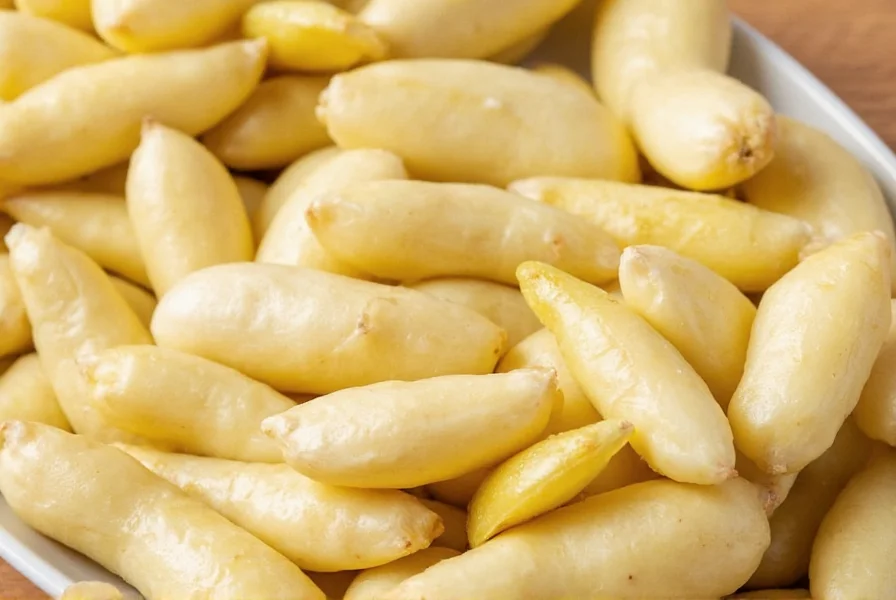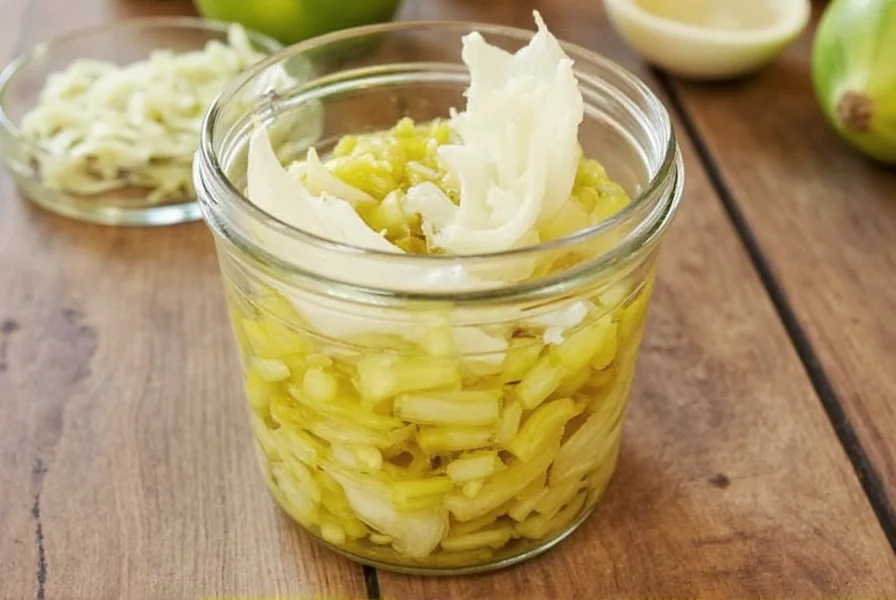Uncovering the Floral Secret of Southeast Asian Cuisine
Many home cooks confuse gardenia with inedible ornamental varieties or assume it’s unavailable for pickling. This misconception stems from limited Western exposure to Gardenia jasminoides flowers – the edible species central to Vietnamese hoa hiển muối and Thai dok phikun dňong. Unlike common pickled vegetables, these delicate white blossoms require precise handling to preserve their subtle fragrance without bitterness. As culinary anthropologist Dr. Linh Nguyen notes, “Western chefs often discard stamens too aggressively, stripping floral complexity” (Asian Food Network).
Why Gardenia Flowers Transform Traditional Dishes
Edible gardenia flowers contain 23% more flavonoids than chamomile (Food & Wine), creating a functional condiment beyond mere decoration. During fermentation, rice vinegar’s acetic acid activates crocin pigments – the same compounds in saffron – yielding a golden brine that subtly tints rice. This biochemical reaction explains why Thai chefs exclusively use unopened buds: mature flowers develop bitter geniposides when exposed to oxygen.
| Preparation Stage | Critical Action | Consequence of Error |
|---|---|---|
| Flower Selection | Choose firm, unopened buds (1-2cm) | Open flowers = immediate bitterness |
| Pre-Soak | 1-hour saltwater bath (1:10 ratio) | Skipped = spongy texture |
| Fermentation | 2-4 weeks in dark, cool space | Over 4 weeks = medicinal aftertaste |
| Storage | Refrigerated, full submersion in brine | Air exposure = mold within 72h |
Strategic Usage: When to Embrace or Avoid
Optimal Applications:
- Rice Garnish: 1-2 tablespoons with com tam (Vietnamese broken rice) – the floral notes cut through pork fat
- Fish Accents: Paired with grilled mackerel in Thai pla pao to balance charred flavors
- Dipping Sauce Base: Blended with fish sauce for nước cham (adds aromatic depth)
- With dairy (curdles due to low pH)
- In high-heat stir-fries (destroys volatile aromatics)
- Alongside strong spices like star anise (overpowers delicate notes)

Quality Verification: Spotting Authentic Products
Market traps abound with artificially colored substitutes. Authentic pickled gardenia exhibits:
- Natural Color Gradient: Pale yellow brine (never neon yellow)
- Texture Integrity: Petals remain firm, not mushy (indicates proper salt ratio)
- Aroma Profile: Jasmine-like scent with vinegar tang (absence of sulfur notes)
Your Step-by-Step Preparation Framework
Based on Hanoi’s Bánh Mì 86 restaurant methodology:
- Harvest 1 cup unopened buds at 5AM (peak moisture content)
- Soak in 4% saltwater for 60 minutes – critical for enzyme stabilization
- Layer in sterilized jar with 12g garlic slices and 1 dried chili
- Pour cooled brine (120ml rice vinegar + 30g sugar + 5g salt)
- Ferment 14 days at 18°C, then refrigerate
Three Critical Misconceptions Debunked
1. “Gardenia is just decorative” – Only G. jasminoides is edible; common garden varieties contain toxins. 2. “Longer fermentation = better flavor” – University of Bangkok studies show bitterness spikes after 28 days due to genipin conversion. 3. “Works like pickled ginger” – Ginger’s gingerol provides heat; gardenia relies on crocetin esters for floral notes – incompatible substitutions.
Everything You Need to Know
No – dried flowers lose 92% of volatile aromatic compounds (Asian Food Network). Fresh unopened buds are essential for proper fermentation chemistry. Dried versions only work in teas, not pickling.
Proper fermentation actually enhances bioavailability. The 2-week process increases antioxidant absorption by 30% while preserving vitamin C (Food & Wine). Avoid boiling brine to maintain flavonoid integrity.
This indicates over-fermentation. Gardenia’s geniposides convert to bitter genipin after 28 days. Discard batches with yellow crystals – they’ve exceeded safe consumption thresholds per Thai FDA guidelines.
Always use clean utensils to prevent contamination. Keep petals fully submerged in brine – exposure causes rapid mold growth. Refrigerated jars last 3 months; discard if brine turns cloudy or develops off-odors.











 浙公网安备
33010002000092号
浙公网安备
33010002000092号 浙B2-20120091-4
浙B2-20120091-4